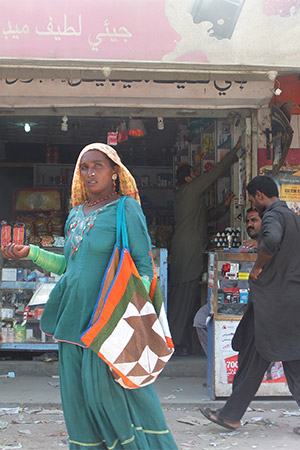This Issue Volume 10, Number 1, June 2019
Read the June 2019 issue.
El Salvador’s Drivers of Poverty: Low Levels of Education, Lack of Access to Water and Sanitation, and Violence and Crime
By Isabelle Bissonnette
This article discusses the underlying problems associated with high poverty rates in El Salvador. El Salvador has advanced access to basic public services but fails to ameliorate the threats of poverty that negatively impact social development. This article reviews explanations for why poverty has not improved more substantially and what some of the key drivers are for poverty in El Salvador, focusing on low levels of education, lack of access to water and sanitation, and high rates of violence and crime. It also discusses ethical aspects related to these three drivers of poverty. The article concludes with some brief suggestions on what El Salvador should do in the future to lower poverty rates and increase economic growth.
Read the full article: El Salvador's Drivers of Poverty
Growing Inequality in the People’s Republic of China: Dimensions and Solutions
By John Feher III
This article examines the current state of inequality in China through a variety of lenses. Following the establishment of the People’s Republic of China (PRC) by the Chinese Communist Party in 1949, China reduced inequalities during the subsequent decades. However, after transitioning to a market-based economy, which started in 1978, under the leadership of Deng Xiaoping and subsequent very high economic growth, China has become one of the most unequal countries in the world in numerous aspects such as income, opportunities like getting higher education, and healthcare. This article looks at some of the dimensions and reasons for these inequalities and explains some possible remedies.
Read the full article: Growing Inequality in the People’s Republic of China: Dimensions and Solutions
Women’s Rights Gone Missing: Gender Inequality and HIV Prevalence in Malawi
By Dezimey Kum
This article examines the socio-demographic and behavioral characteristics underlying gender inequalities and how it is related to the human immunodeficiency virus (HIV)/acquired immunodeficiency syndrome (AIDS) epidemic in Malawi. Malawi is one of the countries that has made unsatisfactory progress in reducing the HIV prevalence rate, especially among women. Some of the main reasons for Malawi’s little progress is due to gender inequality, specifically in the areas of violence, education, empowerment, and healthcare. This article examines these four areas and how much progress has been made in reducing the gender gap in these areas in the interest of controlling the HIV/AIDS epidemic in Malawi.
Read the full article: Women’s Rights Gone Missing
Gender Inequality in Guatemala: Why Girls Receive Less Education Than Boys
By Lizzy Tarallo
This article focuses on gender-based educational inequality in Guatemala, which despite some recent progress is still pervasive. Especially indigenous girls often receive little to no education. This article examines the evolution of gender-based educational inequality in terms of adult and youth literacy rates and primary, secondary and tertiary school enrollment. It then discusses ethical and political aspects of gender inequality in Guatemala, including how educational inequality is related to a societal dependency on girls and women for the collection of drinking water. The article concludes with some basic recommendations.
Read the full article: Gender Inequality in Guatemala

Global Majority E-Journal is a biannual journal publishing on critical issues in the lives of the global majority: the more than 80 percent of the world's population living in developing countries. Topics discussed include poverty, population growth, access to safe water, climate change, and agricultural development. All articles are based on research papers written by AU undergraduate students (mostly freshmen) as one of the course requirements for AU's General Education Course: Econ-110, The Global Majority.

- June 2024
- December 2023
- June 2023
- December 2022
- June 2022
- December 2021
- June 2021
- December 2020
- June 2020
- December 2019
- June 2019
- All Issues (starting 2010) via AU Digital Research Archive